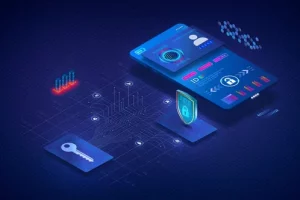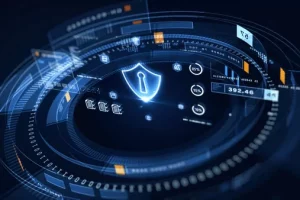Legal and Ethical Dimensions of Cybersecurity
- Posted by 3.0 University
- Categories Cyber Security
- Date June 28, 2024
- Comments 0 comment
Analysis of the ethical and legal dimension of cybersecurity from the student’s point of view is paramount today!
Get to know the main issues, problems, and why acting correctly in cyberspace is essential.
Introduction
It is not just for tech geeks to understand cybersecurity in today’s digital world. It is an effortless solution for everyone, particularly students, to know this topic to the core.
Given the numerous cyber threats, it is now crucial to have a deeper understanding of the legal cybersecurity’s ethical dimensions.
It is surprising how, considering the very same aspect from a student’s perspective, a person can reach a different point of view.
It goes beyond the technological advances to enumerate a set of challenges and responsibilities related to our online safety.
What is Cybersecurity?
It’s nothing but a shielding mechanism that includes the process of protecting computers, networks, and data from unauthorised access, attacks, and damage.
“Filter bubble” has, in the past, been the field that is constantly renewing with adaptation to new technologies and threats to make digital information safe and personal.
The Important Role of Cybersecurity
Everyone involved in an organisation’s technology should understand cybersecurity, as it is a fundamental requirement.
With the advent of online education, it is important to teach both students and teachers how to set up safe ways of learning that will make their personal and educational data secure.
Cybersecurity is a field that is growing, and its significance is felt everywhere, from schools to companies.
The best cybersecurity methods protect against the release of sensitive information, protect privacy, and even improve trust in digital interactions.
Legal Aspects of Cybersecurity
Cyber Laws and Regulations
Legal regulations in cyberspace are a global phenomenon.
They are, to put it bluntly, the nuances of cybercrime and digital data protection, and this includes the current situation in India.
Individuals with integrity concerns who submit their personal data face the risk of trying to prevent it.
Computers render classic crimes such as loss, forgery, defamation, counterfeiting, and destruction obsolete, leading to their inclusion in the Indian Penal Code.
On the contrary, the misuse of computers has led to the emergence of a variety of contemporary crimes, which the Information Technology Act, 2000, addresses.
Types of Cybercrimes
Clearly, misuse means using a computer to attack other computers, either by hacking, a virus or worm, or a DOS attack.
Using a computer as a weapon means committing cyberterrorism.
Among other things, they violate intellectual property rights, deceive with credit cards, commit EFT fraud, and engage in pornography.
The term “cyberlaw” refers to a broad area of law in communication technology, with a particular emphasis on the area known as “cyberspace,” or the Internet.
Furthermore, it differs from the specific fields of property or contract, as it encompasses a multitude of legal domains such as intellectual property, privacy, freedom of expression, and jurisdiction.
To put it succinctly, it symbolizes the machine-like artificial intelligence that violates the law in the digital realm, utilizing sensors sourced from the physical world. [1]
The laws explicitly state the appropriate conduct and the penalties for violating them.
Among the key regulations are GDPR in Europe and CISA in the United States.
The EU General Data Protection Regulation (2016/679) is a law that governs the collection, management, and processing of personal data of EU citizens and residents.
The GDPR defines personal data as any information capable of identifying a natural person or a “data subject.”
One of the most crucial provisions of GDPR is that no one can either withdraw, retain, or even use personal data without the authorities’ permission.
Physical, such as: GDPR is far more inclusive than its US equivalent, as it also binds location, IP, and cookie information.
In contrast, the identical US data privacy regulations cover only finance and health data.
You are bound to abide by GDPR whenever your agency accumulates or functions with personally identifiable information, such as through lead collection forms or advertising pixels.
The EU General Data Protection Regulation (GDPR) of 2016 is a law that assures data privacy and prevents illegal data manipulation through the collection, management, and processing of personal data belonging to people who come from the European Union or live here.
Personal data, which falls under the GDPR, is data that can identify a natural person or data subject.
Data is basically another term for private data, which is anything that can tie somebody’s identity to a particular person.
When it comes to data about a living person, the GDPR refers to them as a “data subject.”
The major regulating principle of GDPR is that no one of the companies has the right to obtain, hold, or manage personal data without the sanction of the individual.
The primary purpose of European cookie laws is to regulate personal data in electronic communications.
As a result, the vast scope of GDPR personal data includes biometrics and health data, which include location, IP, and cookies.
Before connecting a script to the AdWords and Facebook platforms, a business must obtain consent from European customers in order to comply with GDPR.
This requirement aligns with the same freedoms and legal obligations as the GDPR.
Personal data, also known as personally identifiable information (PII), holds immense value today, making it the primary asset for both companies and individuals.
There are a number of processes companies can use to gather users’ information.
These methods involve extracting data from cookie proxies, web sessions, GPS coordinates, or data location points.
Moreover, this way of getting better insight into customers allows other businesses to do better marketing research for the target audience.
Data Protection and Privacy Laws
In the digital environment, data security is one of the mechanisms for controlling personal data.
These laws guide the privacy path and play a crucial role in preventing theft and misuse of personal data.
In order to efficiently secure data privacy rights, the set rules identify the methods of data collection, storage, and transfer.
Learners should be informed about the existence of these laws and how to go about them, meaning they should strive to know how their privacy and rights are protected.
Intellectual Property Rights
Intellectual property (IP) laws safeguard digital developments such as software, music, and writing.
Conversely, understanding these rights in a student’s context helps them respect others’ work and avoid plagiarism or unauthorized use of digital content.
Cyber Crime and Legal Consequences
The spread of online criminal activities such as hacking, identity theft, cyberbullying, and unauthorized access leads to prison.
Students should be aware of these risks in order to stay out of legal trouble and also learn the significance of good behaviour online.
Ethical Considerations in Cybersecurity
Digital Citizenship
Practicing digital citizenship means living ethically online. In doing so, students should be very observant to respect others’ privacy, exclude themselves from cyberbullying, and notify the proper authorities of any suspicious behaviour.
However, we should encourage students to contribute to the development of the internet as a safe and welcoming learning environment.
Intellectual Property Rights
Cyber Crime and Legal Consequences
Ethical Hacking
Ironically, “white-hat” hacking, also known as gentleman’s assault, is a process that checks the system for potential security breaches to make it more secure.
When the system owners’ consent, it is not only legal but also meritocratic.
An aspiring young man interested in cybersecurity might find ethical hacking to be one of his top choices, ensuring compliance with both law and morality.
The Role of Ethics in Cybersecurity
The ethical aspect of cybersecurity is a sort of moral compass at its core. It directs us toward a set of values guiding moral agent choices and activities.
Engineers and students have a moral duty to ensure that technology is used objectively in accordance with the social good, i.e., avoiding social harm.
The guide they need for successful management of complex cybersecurity.
In our next blog, stay tuned to learn about the challenges faced by students in cybersecurity!
If you’re looking for an AI certification course or a cybersecurity online certification course, register now at 3.0 University.”
You may also like

Firewalls & Future of Cybersecurity Careers in 2025


